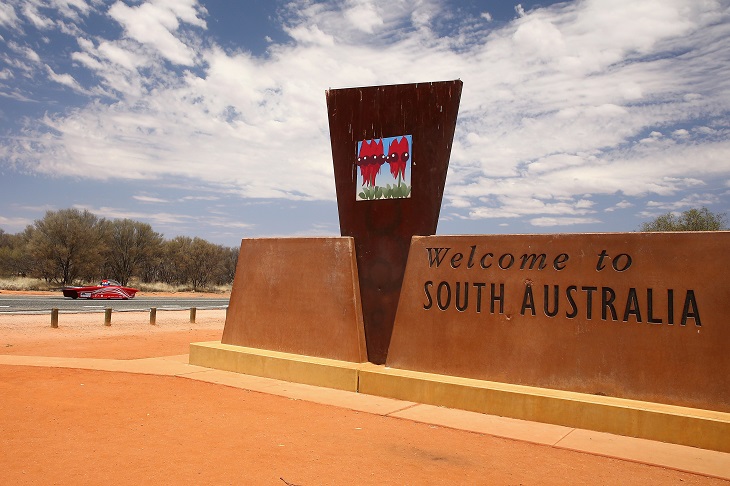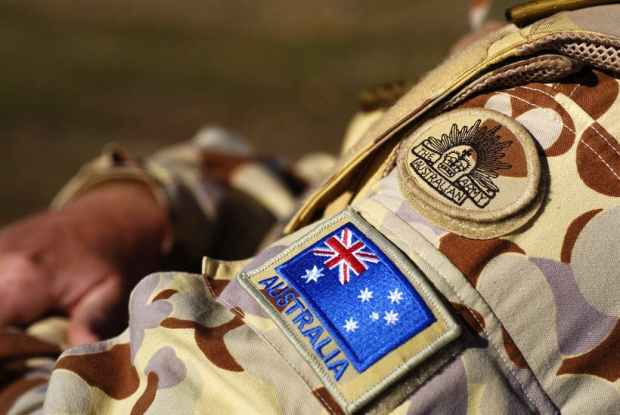Inserted appropriately between Australia’s buttock states – Western Australia and Victoria – lies that curious social phenomenon of South Australia.
Last weekend, South Australians quite predictably voted to return to the status quo, a state Labor government after four years of tenuous LNP rule.
Normal rules don’t apply in South Australia, which to true locals consists of Adelaide plus somewhere else including, but not limited to, the rest of the state.
The state that brought us The Family, Snowtown, and Truro murders along with the truly evil Bevan Spencer von Einem boasts it was colonised by free settlers – no convicts needed…
The important social distinction in South Australia is not just wealth, but more importantly, where one attended school, specifically one of Adelaide’s exclusive private colleges accessible even to those from somewhere else.
In the City of Churches the second divide is religious where piety doesn’t always translate into individual probity.
Third is which footy team one barracks for and an ability to read the ‘Tiser [The Advertiser] so as to follow closely football and politics in the order they appear in the newspaper.
South Australia is known for wine, wool, football, pie floaters to stave off sobriety, kangaroos in the Parklands, and Holden cars. Not to mention green frogs, double-cut buns, Kitchener buns, bung fritz, and Adelaide’s central markets.
Well, not Holden (or any car) since the motor industry became moribund in the mendicant state – once Australia’s largest vehicle manufacturer. That started in what is now central Adelaide, where multiple related manufacturing once flourished.
A relic of this is the fly ash residue from hundreds of forges which was dumped in Victoria Park, creating a legacy of radioactive contamination in which generations of private school boys frolicked.
No one wants to confront this legacy on the grounds – or in the grounds – since everyone did it and it was good for them.
Equally contaminated is the stagnant pond in the River Torrens, the grandiosely named Lake Torrens.
Whenever it rains the equivalent faecal fauna residue of two million humans washes from the greater parklands into the water, increasing the already high E. coli levels while causing mass panic.
Swimming in Lake/River Torrens late at night can also be detrimental to human health.
Dividing inner Adelaide from these same parklands is North Terrace, home to Adelaide Zoo, University, Government House, State Parliament, hospital, and the Casino.
On the far side of the road is the preferred sanctuary of old Adelaide schoolboys and the landed gentry, the Adelaide Club, whose foyer is graced by just the front half of a taxidermal lion.
Upper-class South Australians maintained city residences in North Adelaide, from which the city’s visionary architect Colonel Light still gazes upon the realisation of his vision, wondering where it all went wrong.
Perhaps he might start with the late premier Charles Cameron Kingston who was exhumed in 2008 to test claims from several prominent South Australians that they were previously unrecognised descendants, and so it proved.
Similarly in the Riverlands where an itinerant Hoover salesman also implanted his DNA in multiple, unsuspecting female sales prospects.
After what seemed a lifetime of benign dictatorship, another former premier Sir Thomas Playford was finally pried from office, bequeathing a unique legacy of amorphous relationships in Australia’s otherwise fiercely adversarial political environment.
A teetotal authoritarian, Playford was essentially Liberal conservative-come-agrarian socialist whose so-called Playmander kept him in office.
Although not a product of the school mafia, Playford was seen as a good South Australian but a very bad Australian.
Menzies was supposed to have said, ‘Tom [Playford] wouldn’t know intellectual honesty if he met it on the end of a pitchfork but he does it all for South Australia, not for himself.’
Nor was he always loyal to his party, described as an unusually insolent and disloyal backbencher, always concerned to cut a figure and ridicule his party’s leader.
His political and personal friendships crossed party lines, particularly Don Dunstan – the libertarian Labor politician who morphed into Playford’s nemesis – ushering in the mostly Labor dispensation which has governed South Australia since his departure.
And so it continues following the state election.
There is no doubt Malinauskas ran the best campaign, a charismatic leader, clearly man of the match, something of a gender rarity in South Australian politics.
He has inherited the grand South Australian tradition of political opportunism as preached by Playford, where aggrieved members spit the dummy, form their own irrelevant parties, or even cross no-man’s land as former LNP leader Martin Hamilton-Smith did for the seductive caress of ministerial leather upon his buttocks.
With a grand tradition of the Michael Atkinson belt-and-braces bicycle-riding Traditional Anglican universal celibacy party, or the Jack Snelling Catholic equivalent, to Cory Bernardi’s short-lived Christian Australian Conservatives, South Australians preserve the Playford Principles of political opportunism and dissent.
Don’t even mention Nick Xenophon.
Even in Adelaide the devil makes work for idle, ambitious hands.
Come Friday fortnight when ambitious new members have not been given the ministerial responsibility they believe they deserve, distant rumblings of discontent will commence.
And whoever commands the Treasury benches after the federal election Malinauskas, like Playford, will argue beyond his state’s actual representation but disproportionate cabinet numbers to keep inefficient industries alive for the benefit of South Australians’ vision of themselves and their place in the world.
The rest of us will simply have to pick up the bill.
Got something to add? Join the discussion and comment below.
Get 10 issues for just $10
Subscribe to The Spectator Australia today for the next 10 magazine issues, plus full online access, for just $10.

























Comments
Don't miss out
Join the conversation with other Spectator Australia readers. Subscribe to leave a comment.
SUBSCRIBEAlready a subscriber? Log in